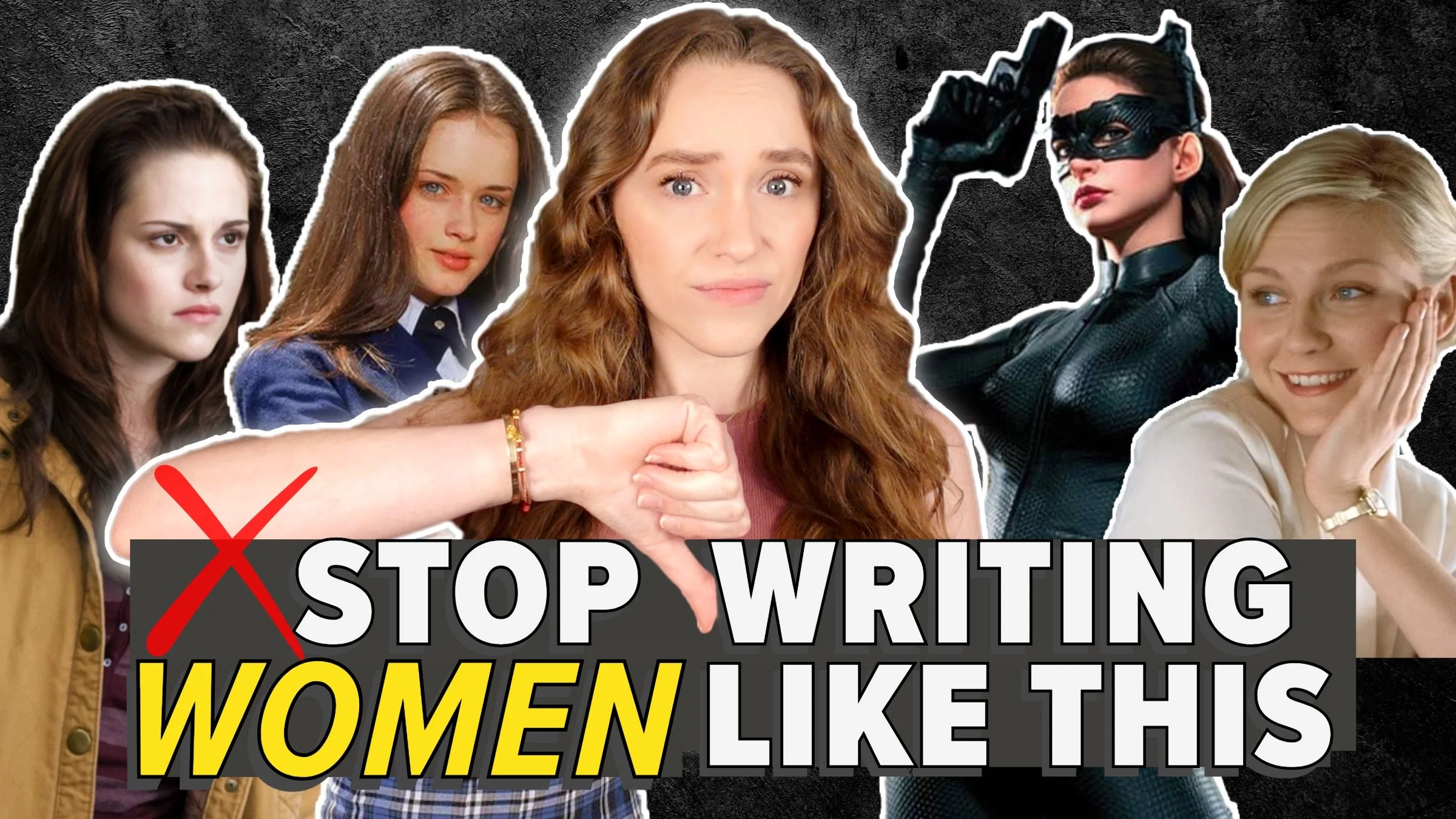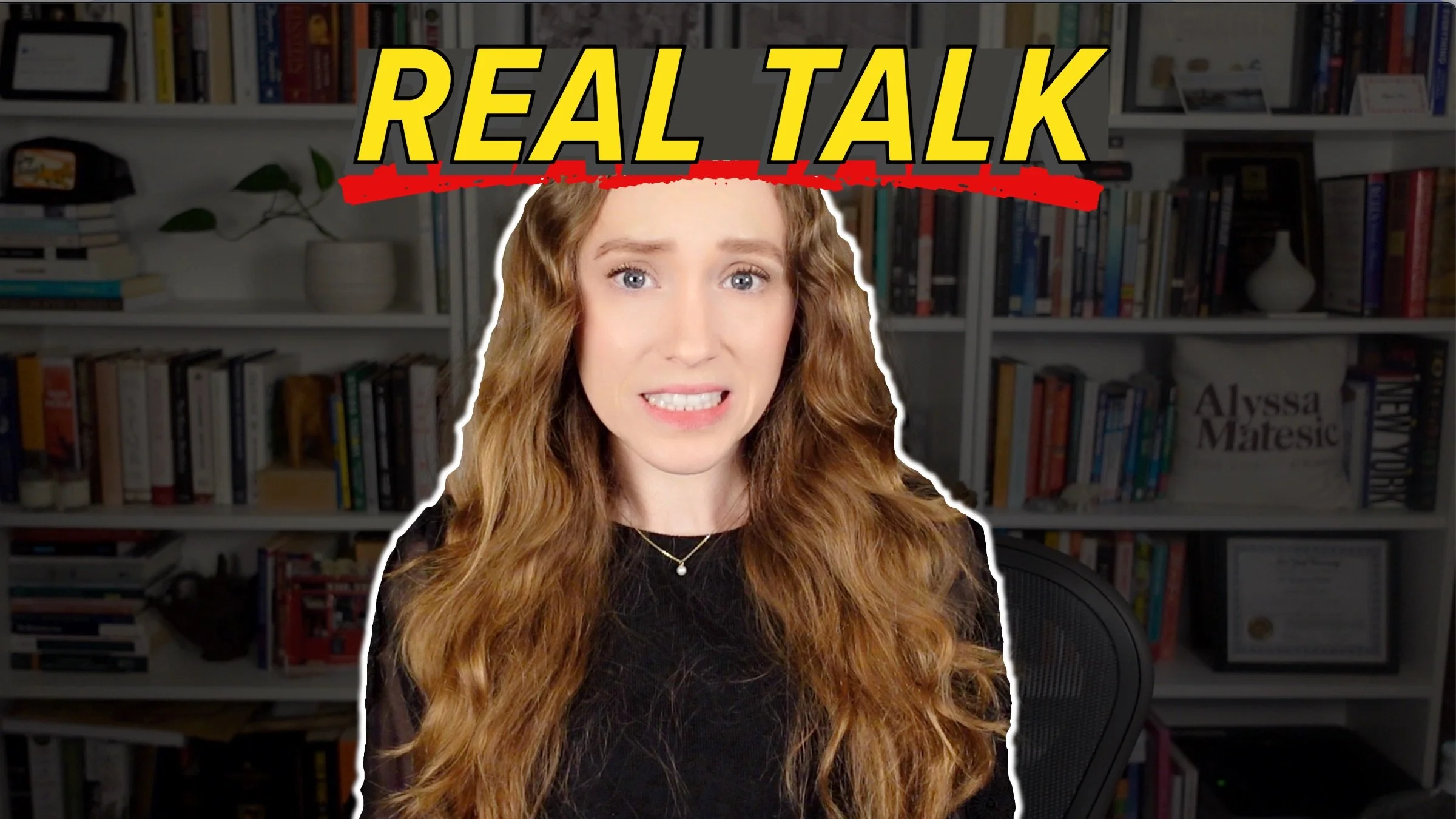Do You Need a Huge Following to Get a Book Deal?
HIT PLAY OR READ THE POST BELOW:
It's a fear many aspiring debut authors have: no publisher will offer you a book deal unless you have a huge social media following or are a celebrity of some kind. But does this fear have any basis in reality? Do you need a social media following to get published? We finally have an answer to this burning question, because publishing industry expert Jane Friedman did a deep dive into what types of authors were getting debut book deals with traditional publishers.
I'm personally incredibly passionate about empowering debut authors, so I was super eager to dive into Jane's report, and I feel it is essential knowledge for any aspiring debut novelist. Let's dive in.
Jane Friedman’s Debut Novelist Deals Analysis Analysis
In her publishing industry newsletter, “The Hot Sheet,” Jane created a chart showing different types of debut authors that got traditional book deals, as reported in Publishers Marketplace over the past five months. It's important to note that the data that is reflected in the chart only reflects the deals that were published in Publishers Marketplace during the given time frame of five months within the debut fiction category, but it does give us an interesting cross-section.
It seems that Jane was going into this research with the interest of either proving or disproving the claim that debut novelists need large platforms to get traditional book publishing deals. Here's the chart and the caption that Jane posted on Instagram:
“Alarmist articles in recent years have claimed that novelists, in order to land a traditional publishing deal, need to be online superstars. But my analysis of debut deals in Publishers Marketplace (PM) shows that's outright false. While it is true that most authors who land deals—especially agented deals, the majority of those reported to PM—have some visibility within or connections to the traditional publishing community, it's rarely online visibility.
“The following analysis looks at the approximately 150 debut fiction deals reported to PM between April and August 2024. After excluding debuts from established nonfiction authors and established authors in other countries, plus deals for North America made by UK publishers, 131 deals remain for analysis. These deals fell into seven distinct categories.”
Here are the categories, in order of their percentages in the chart:
Literary & university community
No obvious connections
Journalist & media community
TV/film/stage/entertainment
Publishing industry types
Self-publishing authors
Online creator or influencer
Writers with “No Obvious Connections”
She goes on to say one category, “no obvious connections,” means the person didn't appear to have an MFA degree, wasn't actively publishing, didn't have awards or grants, didn't work in the publishing industry or media industry, and did not have any notable online presence that would have led to a book deal. As we can see at a glance in this chart, the smallest sliver of the pie is online creators or influencers, so based on this chart that's really a negligible category in terms of who is getting debut fiction book deals with traditional publishers.
The biggest segment, 37.8%, is going to novelists who have some connection to the literary or university community, followed by those with no connection at all. In fact, those with no connection at all to the literary, publishing, or media industries made up 20.5%, which makes up 1/5 of all debut fiction deals.
Jane actually published a follow-up post detailing in more specificity what it entailed for an author to fall into the “no obvious connection” category:
“In terms of this specific analysis, ‘no obvious connections’ means:
• no clear published work or visibility in the writing and publishing community
• no professional writing and publishing experience or media experience
• no degrees, awards, residencies, fellowships
• no relationships that might give them preferential treatment (at least public ones)
• no online presence or following that would draw agent or publisher interest
Most writers who land book deals do demonstrate some commitment to writing, often through degrees or publication (no matter how small), and various literary endeavors.
Writers with no obvious connections tends to include people who:
• work in other professions and aren't pursuing writing full time (lawyers, doctors, real estate agents, contractors, service people, etc.)
• may primarily take care of children or family members and don't have time to participate in the writing and publishing community
• people who are retired or otherwise have no need to work a paying job
• simply stay offline and remain very private
I used ‘no obvious connections’ as shorthand for ‘I would not have guessed this person would have landed a book deal.’ In all other categories, professional/published writing is a clear goal.”
What This Means for Debut Authors Pursuing Publication
So with all of this in mind, let's set the record clear once and for all: You do not have to have a huge social media following to get a traditional book deal as a debut novelist. Finally, we now have data to back it up.
One way to read this chart would be to look at those large sections of the pie and conclude that the majority — 74.8% to be exact — of debut novelist deals did go to people who had some connection to the literary media or entertainment industries. I could see how that could maybe feel discouraging to an author who has none of those connections of any kind. But if you fall into this category, I don't want you to feel discouraged, because the second biggest category here is authors who have no obvious connections.
That said, if you are highly concerned about putting yourself in the best possible position to get a traditional publishing deal, then perhaps instead of focusing on how to build an online presence, focus more on ways to join a literary community of some kind.
The good news is that anyone can become a part of the literary community, no matter your degree or background. There's no specific barrier to entry. It's not necessary for you to get a job in book publishing or enroll in an MFA program, unless of course you want to. You can become a member of the literary community by attending workshops and writing events or conferences, by taking a course online or in your community, and by publishing your work, whether it's personal essays or journalistic articles or short fiction. So the jump between “no obvious connection” and “literary and university community” isn't as big as you might think.
Remember, if you don't have the time to engage in the literary or publishing community at all, that's perfectly fine as well, and it doesn't mean that you are excluded from getting a traditional publishing deal. So, which category do you fall into? How does this chart make you feel about your publishing chances?
Thank you so much for reading, and happy writing!







